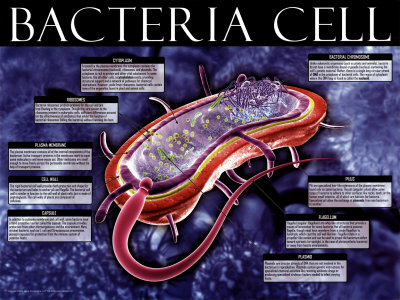“There is enough capacity in a single human cell to store the Encyclopedia Britannica, all 30 volumes of it, three or four times over.” [1] This is a quote from Richard Dawkins.
I don’t know about you but if I came across an encyclopedia that was three or four times the size of the Encyclopedia Britannica, you could never get me to believe that it came into existence without any intelligence behind it. But that’s what Richard Dawkins, famous atheist, believes and evangelizes, and probably also makes a lot of money espousing.
“To illustrate further, the amount of information that could be stored in a pinhead’s volume of DNA is staggering. It is the equivalent information content of a pile of paperback books 500 times as tall as the distance from the earth to the moon, each with a different but specific content.” [2]
Let me say that in a different way for you. The distance between the earth and the moon varies, but the average is 238,900 miles (384,400 km). Imagine a stack of paperback books, all different, that is 11,945,000 miles high. Now shrink down all that information until you can put it on a pinhead. That is the reality of the world around us. That’s how much information exists all around us in every square millimeter of the plants, animals, and people we see. Almost incomprehensible!
Atheists do not believe there was any superior intelligence behind all that information. It all comes from accidental mutations and natural selection (which I have already written about as processes that LOSE information). The more scientists discover about DNA and microbiology, the harder atheists have to work to keep believing in nothing as the source of life.
“…But in all the reading I’ve done in the life-sciences literature, I’ve never found a mutation that added information. …All point mutations that have been studied on the molecular level turn out to reduce the genetic information and not to increase it.” [3]
(NOTE: Let me say that in layman's terms. The very type of mutation that evolutionists depend on happening billions of times to produce all current life forms has NEVER EVER been observed even once in the history of science.)
Life cannot exist without order and information. Every living being starts out with a single cell which contains all the information needed to eventually build the complete organism. When scientists tried to determine the smallest amount of information necessary to still end up with a potentially living organism, they came up with 256 genes. But they profess this theoretical organism might not be able to survive on its own.
“More recently, Eugene Koonin and others tried to calculate the bare minimum requirement for a living cell, and came up with a result of 256 genes. But they were doubtful whether such a hypothetical bug could survive, because such an organism could barely repair DNA damage, could no longer fine-tune the ability of its remaining genes, would lack the ability to digest complex compounds, and would need a comprehensive supply of organic nutrients in its environment.” [4]
“Is it really credible that random processes could have constructed a reality, the smallest element of which – a functional protein or gene – is complex beyond our own creative capacities, a reality which is the antithesis of chance, which excels in every sense anything produced by the intelligence of man? Alongside the level of ingenuity and complexity exhibited by the molecular machinery of life, even our most advanced artifacts appear clumsy…” [5]
Encyclopedic amounts of information are required for the most basic form of life to exist. It could not be assembled step by step and then suddenly come to life. The information had to already be there at the beginning of life.
Imagine the most complex system you can think of, say a supercomputer, a skyscraper, a spaceship, whatever. The amount of information to build those systems is not enough to build the first living cell. Life is no accident.
There has to be God.
_________________________________________
[1] Famous atheist Richard Dawkins, The Blind Watchmaker, p. 115. (New York: W. W. Norton 1986)
[2] Jonathan Sarfati, Refuting Evolution. p. 121 (Green Forest, AR, Master Books, 1999). Original information from W. Gitt, “Dazzling Design in Miniature”, Creation Ex Nihilo, 20(1): 6, December 1997-February 1998.
[3] L. Spetner, Not by Chance (Brooklyn, NY: The Judaica Press, Inc.) p. 131-143.
[4] ] Jonathan Sarfati, Refuting Evolution. p. 123 (Green Forest, AR, Master Books, 1999). Original information from W. Wells, “Taking Life To Bits”, New Scientist, 155 (2095): 30-33, 1997.
[5] M. Denton, Evolution: A Theory in Crisis (Chevy Chase, MD: Adler and Adler Publishers, Inc. 1986), p. 328.




No comments:
Post a Comment